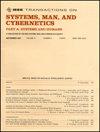Semantic-Aware Informative Path Planning for Efficient Object Search Using Mobile Robot
IEEE Transactions on Systems Man and Cybernetics Part A-Systems and Humans
Pub Date : 2021-08-01
DOI:10.1109/TSMC.2019.2946646
引用次数: 14
Abstract
In this article, a novel informative path planning (IPP) framework is proposed for efficient robotic object search. We innovatively reformulate the object search into an IPP problem, which takes account of the knowledge of possible target object locations. To model the target object distribution knowledge, the semantic information of the focused environment is utilized to obtain the probabilities of finding the target object at possible locations. Then, the probability distribution is modeled by Gaussian mixture model (GMM) to generate an information map. Based on the map, a sampling-based IPP method is proposed to minimize the object search cost. It is worth noting that the object search path is planned with a tree structure and evaluated by a utility function that concerns both search information gain and path cost. Moreover, to improve the quality of the search path, a novel informative sampling strategy and a rewire mechanism are conceived. The performance of the proposed object search framework is fully evaluated through both simulation experiments and real-world tests with a mobile robot platform. Results demonstrated that our method can find the target object efficiently and robustly with shorter path length than three comparative methods in the literature and the mobile robot shows human-like behavior when searching for the target object.基于语义感知的移动机器人高效目标搜索信息路径规划
本文提出了一种新的信息路径规划(IPP)框架,用于机器人目标的高效搜索。我们创新地将目标搜索重新表述为IPP问题,该问题考虑了可能目标对象位置的知识。为了对目标物体分布知识进行建模,利用焦点环境的语义信息来获得目标物体在可能位置的发现概率。然后,利用高斯混合模型(GMM)对概率分布进行建模,生成信息图。在此基础上,提出了一种基于抽样的IPP方法,使目标搜索成本最小化。值得注意的是,对象搜索路径是用树结构规划的,并由一个实用函数来评估,该函数涉及搜索信息增益和路径成本。此外,为了提高搜索路径的质量,提出了一种新的信息采样策略和重新布线机制。通过仿真实验和移动机器人平台的实际测试,充分评估了所提出的目标搜索框架的性能。结果表明,该方法比文献中比较的三种方法具有更短的路径长度,能够高效鲁棒地找到目标物体,并且移动机器人在搜索目标物体时表现出与人相似的行为。
本文章由计算机程序翻译,如有差异,请以英文原文为准。
求助全文
约1分钟内获得全文
求助全文
来源期刊
自引率
0.00%
发文量
1
审稿时长
6.0 months
期刊介绍:
The scope of the IEEE Transactions on Systems, Man, and Cybernetics: Systems includes the fields of systems engineering. It includes issue formulation, analysis and modeling, decision making, and issue interpretation for any of the systems engineering lifecycle phases associated with the definition, development, and deployment of large systems. In addition, it includes systems management, systems engineering processes, and a variety of systems engineering methods such as optimization, modeling and simulation.

 求助内容:
求助内容: 应助结果提醒方式:
应助结果提醒方式:


